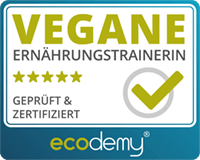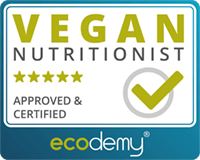Optimising your nutrition as a vegan athlete
Acommon misconception people think of when they hear of a vegan diet is that such a diet is limited to eating vegetables and fruits. And when you combine the idea of vegetables and athletics, people struggle to understand how these two can coexist. After all, where is the protein?

Visit activeplantbased for professional help and plant-based nutrition training.
The general rule, regardless of what diet you follow, is to ensure that your chosen diet is adequate to supply your body with the right amounts and kinds of fuel.
Vegan athletes can achieve this through a careful combination of plant-based proteins, complex carbohydrates, healthy fats and other nutritious plant-based foods.
Research has shown that legumes, nuts, and seeds can provide athletes with great sources of energy, healthy fats, and essential vitamins and minerals.
It is true that athletes should be mindful of their protein because isolated plant sources cannot provide the same amount as animal protein.
Through careful portion control and combining various plant-protein sources, and proper supplementation when needed, athletes can ensure that their vegan diets meet all of the essential nutrients to enhance performance.
Here are some suggestions on how you can nutritionally enhance your performance with an active lifestyle — all vegan.
The easiest way out: Protein powders
Increasing your daily protein intake with the help of protein powder
- Have it as a shake. There are plenty of different flavours and brands to choose from.
- Add it to breakfast bowls, yoghurt, porridge, smoothies and pancakes.
- Unflavoured protein powders are best combined with savoury meals, too, like soups, bakes, purees, homemade sauces/salsas, etc.
- When baking, you can replace some of the flour with protein powder for that extra protein boost.
Optimise your carbohydrate supply before training to build endurance.
- Whole grain products, like oats, quinoa, buckwheat, brown rice, spelt and barley, are recommended. Make sure you do not overeat, however, since they are harder to digest and can leave you with an uncomfortable feeling of fullness.
- Consuming simple sugars such as bananas, dried fruit, pseudo-cereals, and cereal bars provide your body with carbohydrates quickly since these are quick to digest.
- Rice and homemade potato crisps are also food choices for quick energy.
Help your body recover after training.
Depending on when your next training session is, you can:
- Have a protein shake using plant milk & protein powder, bananas, berries and/or oats for when you’re in between sessions.
- Tofu or tempeh. Here you will find 10 of my favourite ways to cook tofu.
- Make nutritious bowls with legumes (chickpeas, beans, lentils) and carbohydrates such as quinoa and avocado, olives, seeds and nuts for healthy fats.
- Add to your shakes or pair your meals with some leafy greens and other vegetables for some extra fibre, vitamins and minerals.
What to eat to help satiety and feel comfortably full and satisfied
- Eat high-fibre plant-based foods like whole grains, beans, and legumes.
- Choose healthy plant-based fats such as nuts, olives, and avocados.
- Add protein-rich vegan foods such as seitan, tofu, tempeh, lentils, and beans to meals and snacks to promote satiety.
- Include plenty of fresh fruits and vegetables in your diet that contain water, dietary fibre and essential nutrients that can help keep you fuller for longer.
Be prepared
As I’ve said before, establishing a routine usually works best. If you are not a routine person, planning your meals in advance, even if it’s the day before, will also help.
By carefully selecting the right foods, controlling portion sizes, and properly supplementing where necessary, you can ensure that your nutritional needs are adequately met for peak athletic performance.
If you need more help, contact me here.
Thank you for reading and supporting our love of writing.
─ the activeplantbased pub 🐇

